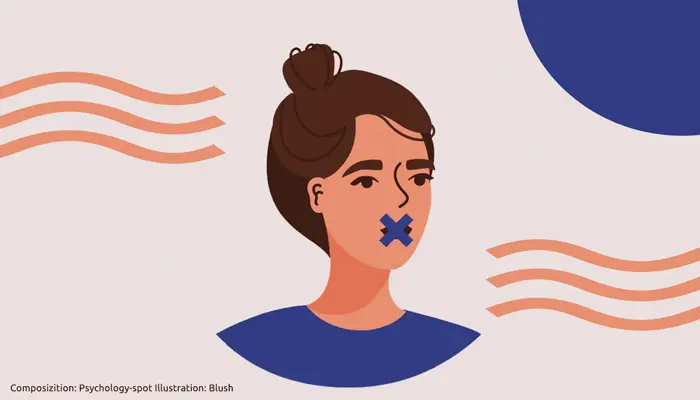
Sincerity is one of the characteristics that we value most in a relationship. In fact, it is one of the essential requirements for it to prosper. When people lie to each other, there are cracks in their trust that end up undermining the relationship. However, is it really possible to be 100% honest? Should we have secrets in a relationship?
Why do we keep secrets?
The idea that secrets can ruin a relationship is well established in the popular imagination. However, the truth is that there are a thousand and one reasons not to tell everything we think or feel. And it doesn’t always mean that we are betraying the other.
Fears, insecurities, doubts or simply the desire to protect our privacy or even not to harm that person are some of the main reasons that lead us to keep secrets in our relationship.
We also often decide to keep things to ourselves to avoid disapproval. If we know that something doesn’t sit well with our partner and we do it, we usually prefer to hide it so as not to generate conflicts. In this way we maintain our independence and avoid arguments.
In fact, shame is another very powerful reason that drives us to keep secrets. If we are ashamed of certain behaviors or actions and believe that these may diminish our value in the eyes of our partner, we are likely to decide to hide them or avoid the topic. After all, we all protect our image.
It’s not as rare as we might think. In fact, everything seems to indicate that the strange thing is not keeping secrets.
Research conducted at the University of Tennessee on more than 400 people, revealed that more than 60% kept a personal secret in a romantic relationship and a quarter of them had secrets with their current relationship.
Keeping secrets in a relationship: yes or no?
Despite the importance of sincerity, keeping certain information to ourselves means practicing our right to privacy. Not revealing things we are uncomfortable with or avoiding topics we are not ready to deal with is also a way to protect our individuality.
In a way, that intimate space to which only we have access helps us preserve our independence and freedom. It also allows us to exercise the right to share what we want from our lives, to the exact extent we deem appropriate.
Of course, there are secrets and secrets. It is one thing not to tell the details of our first relationship and quite another to hide infidelity. It is one thing not to tell something that happened to us when we were children and quite another to hide that we were married or that we have a huge debt to pay.
Small omissions are usually innocent and, unless we are dealing with a controlling and insecure partner, will not harm the relationship. In fact, the secrets that can affect the couple are those that directly concern the other person and that are deliberately hidden to deceive the other.
What should we never hide?
Trust is built over the years
A secret can become a barrier that prevents people from forming a deeper bond, so generally speaking, couples should feel comfortable enough to talk about everything. They should feel supported, validated and not judged. Every person should feel safe to talk about what worries them, share their wildest dreams or their worst nightmares.
However, it is not always like that.
Mutual trust is one of the bases of a healthy bond, but we must keep in mind that it is something that is built day by day. As the years go by, people should stop feeling vulnerable in the relationship, which will allow them to open up more and trust each other.
However, it must be taken into account that absolute sincerity does not necessarily equate to a healthy relationship since each person has the right to maintain their privacy, without this meaning that they are deceiving or lying to the other.
In general, we should not hide anything that could directly affect our partner or the relationship. As a rule, the most harmful secret is precisely the one we want to keep because we fear that our partner will disapprove us.
If we do not allow him/her to know us better, if we do not open the epicenter of our identity, we are preventing it from forming a complete image of us, with our virtues and defects, successes and failures. The longer we keep these types of secrets, the more difficult they will be to confess and the more they can jeopardize the long-term relationship since the more betrayed the other person will feel.
References:
Easterling, B. et. Al. (2012) Secrets in Romantic Relationships: Does Sexual Orientation Matter? Journal of GLBT Family Studies; 8(2): 196-208.



